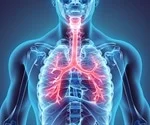

On 22 October 2020 paediatrician Ellen van der Gaag will receive her PhD for her thesis entitled 'Health-promoting effects of nutrition in children'. The award ceremony was originally planned for March 2020, but was delayed by the COVID-19 pandemic.
Van der Gaag's thesis considers the effect of unprocessed, pure food on children's health, specifically on the common cold and other upper respiratory tract infections.
An ordinary cold has serious consequences today. A child with a cold will be prevented from going to school or after-school childcare facilities, and its parents are then obliged to stay at home. They will have to be tested for COVID-19, spending days on waiting lists for these tests. As winter approaches and common colds grow more frequent, Ellen van der Gaag's findings have become particularly relevant.
The review section of her thesis describes how certain foods can help to prevent respiratory tract infections, both in children and adults. These foods include prebiotics and probiotics, follow-on up milk, garlic, kiwifruit and fish oil. Foods that can reduce the duration of an infection include probiotics, kiwifruit, fish oil, and elderberry syrup.
This is a so-called 'narrative review', in which Van der Gaag searched the international literature for the effects of generally available food products and their influence on upper respiratory tract infections. In all she examined 33 studies in which these food products were shown to have a significantly positive outcome.
In March van der Gaag received a great deal of publicity from a variety of newspapers, journals, magazines, and radio and television programmes for the results of her study into the effect of unprocessed and natural food on children's health.
Van der Gaag also carried out several intervention studies on children (1-4 years old) with constantly recurring colds and coughs - 'sniffly kids'. The dietary introduction of four foodstuffs - full-fat milk, butter, beef and green vegetables - yielded a significant reduction in the number of upper respiratory tract infections, days off with a cold, coughing and the use of antibiotics. The children also made fewer visits to the family doctor, suffered less fatigue and slept better.
The studies were carried out before the coronavirus pandemic. They were not, therefore, tested for their effects on coronavirus infection, and no conclusions can be drawn on its effectiveness in this regard. A good diet strengthens the body's immune system and the body capacity for recuperation (this thesis).
The battle of individual patients against coronavirus depends on a well-functioning immune system, so certain general principles will certainly hold; however, it has not been demonstrated with Covid-19 because this virus only recently came into existence.
